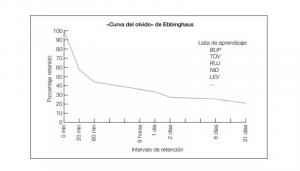Tacit knowledge: what it is and how we express it in our lives
Throughout history, the study of intelligence and its value in representing people's abilities and knowledge has been a topic of interest. Thus, since the beginning of the 20th century, thanks to figures such as Binet, it has been shown that academic intelligence significantly correlates with high school performance. Besides, Numerous tools have been developed to assess intelligence and to establish accurate forecasts about intellectual functioning in everyday life.
Moving away from the study focused on academic intelligence, since the 1990s interest in intelligence unrelated to academics has grown. Some examples of this type of intelligence would be practical intelligence, social intelligence, multiple intelligences, emotional intelligence and tacit knowledge. The researchers state that there are similarities between all of these proposals; They focus on declarative and procedural knowledge.
It is important to know about this type of intelligence to go beyond merely academic and understand intelligence as a continuum with the ability to be represented in different and varied contexts. Furthermore, these intellectual abilities have been shown to have a significant impact on the organization. psychology of people, their quality of life and the chances of being more or less successful in life and tasks everyday.
Throughout this article, we will discover more about tacit knowledge.. Tacit knowledge refers to all that obtained through daily experiences, with implicit qualities of the experiences and problems that we face in everyday life.
What does "tacit" mean?
Although tacit knowledge did not begin to be studied in more experimental or empirical ways until the end of the last century, there are references from Aristotle about tacit knowledge. He defined it as the set of all information obtained through sensitive experience in contact with reality.
In the year 2000, tacit knowledge began to be investigated trying to answer the distinctive characteristics between the most and least successful people in daily life and their tasks. It was found that most of the knowledge needed to be successful in everyday tasks was tacit; unconscious.
But what does it really mean for something to be tacit? In the words of the Royal Spanish Academy, when something is tacit it means that it is not formally understood, perceived or said, but that it is assumed or inferred. Therefore, tacit knowledge is everything that is assumed to be known. without consciously explaining it; it is simply part of the everyday and daily schemes and is put into practice to carry out these tasks. Differences in tacit knowledge between people will be determined by the extent to which they are successful in these tasks, take more creative paths to solutions or the speed or ease with which perform.
- Related article: "The 14 types of knowledge: what are they?"
Characteristics of tacit knowledge
Researchers focused on the study of intelligences other than academic have highlighted manifest that no type of knowledge, not even the most explicit, is devoid of knowledge tacit. Making use of tacit knowledge highlights the link it has with ethical and moral principles, their own culture and personal experiences characteristic of each individual. Next, we will comment on some of the main characteristics of tacit knowledge that make it remain so present in our daily life and in most aspects or situations in which we make use of intelligence and knowledge.
1. It is implicit
Explicit knowledge refers to the set of formal information obtained through scientific literature, specialized documents or teaching professionals. They are normally standardized knowledge and based on data, books and studies.
On the contrary, when we talk about tacit knowledge, we are talking about implicit knowledge. This means that it is acquired on its own, it is built over time depending on the interaction with the environment and its actors and the repercussions of our actions on them. Therefore, tacit knowledge is normally non-verbalized, and not emphasized; receiving it from a third person has little to do with success in practice.
- You may be interested in: "Cognitive Psychology: Definition, Theories, and Leading Authors"
2. it is procedural
Tacit knowledge is focused on and associated with actions and the processes that lead to actions; gives more relevance to "knowing how" than to "knowing what". Tacit knowledge is usually oriented towards a particular use or a specific context..
By studying the ways in which people feel they acquire tacit knowledge, it is common to obtain crude answers or statements that also do not give much value or information about the knowledge that is have.
For example, if you ask your grandmother how she learned to make such good croquettes, she will probably answer that she did it “while in the kitchen” or “over time”. When thinking about how this knowledge is acquired, it is as if the subjects were not fully aware of it.
3. Has instrumental value
Being action-oriented, tacit knowledge has an instrumental value to the extent that it is willing to achieve goals in daily life. According to this view, the more value is placed on a goal and the more directly achievement-oriented knowledge is held, the more usable this concrete knowledge will be; it will be easier to put it back into action in the future.
- Related article: "Theories of Human Intelligence"
4. Not a substitute for general intelligence
Tacit knowledge is fundamental to our intelligence and everyday cognition, but it is not a substitute of general intelligence, despite the fact that it is represented in some way in most types of knowledge.
Above all, applied to intelligence measurement tools in general, it is very difficult to establish a way to measure or value tacit knowledge, being such an implicit and unconscious component of the human mind. In the same way, tacit knowledge is not reducible to academic intelligence; They are two different and equally important components.
5. Is not sufficient
In relation to the previous characteristic, tacit knowledge is not enough to be successful in all aspects of life of a person. There are numerous factors for this, among which are the motivation for achievement, the personal opportunities of each person and the general factor of academic intelligence. It is important to take into account all these multimodal and multifactorial aspects when understanding the general performance of a subject.
Examples of tacit knowledge
Next, we are going to propose some common examples of tacit knowledge, so that you finish understanding this concept more and realize those tacit skills that you may have.
1. Bicycling
It may be that you have ever heard that “riding a bike is never forgotten”. After learning to ride a bike and practicing long enough, we gain the tacit knowledge to balance, pedal, turn, and brake.

So, that skill is automated, without the need to think about each specific step when riding a bike.
- You may be interested in: "What is Epistemology and what is it for?"
2. Drive a car
Similar to the bicycle, once we gain experience and knowledge of riding, tacit knowledge becomes extends to aspects related to the ability to judge distances, estimate speeds, change lanes and maneuver in the traffic.
3. Play a musical instrument
Experienced musicians end up developing a tacit understanding of how to play their instrument. They play notes, chords and melodies without thinking about each of the little movements they make with their fingers, for example. Tacit knowledge in these cases includes aspects such as technique, interpretation and musical expression.
4. Culinary skills
When time passes and you learn different recipes or cooking dishes, you begin to internalize different cooking skills, such as the amount of salt that you must add, the intensity of the fire that you must use so as not to burn your food and the adjustment of ingredients to use so that it does not exceed or lack meal.
unconscious but important
In conclusion, we could say that tacit knowledge is part of us unconsciously, but that does not make it less important for our vital development and daily performance. It is important to note that tacit knowledge is not explicit; Yes, you can learn to develop different skills, but the exact way in which each person performs a task is something unique and practically non-transferable. No one will cook lentils like your mother or have the same grace when speaking as your friends. All people have skills and abilities that make us unique and differentiate us from the rest, and this is what we mean when we talk about tacit knowledge. Sometimes we tend to think that everything we are not aware of is not important or not valuable, but in many Sometimes, all this conglomerate of attitudes is what, even if they are details, differentiates us from other people and their ways of thinking. Act.


